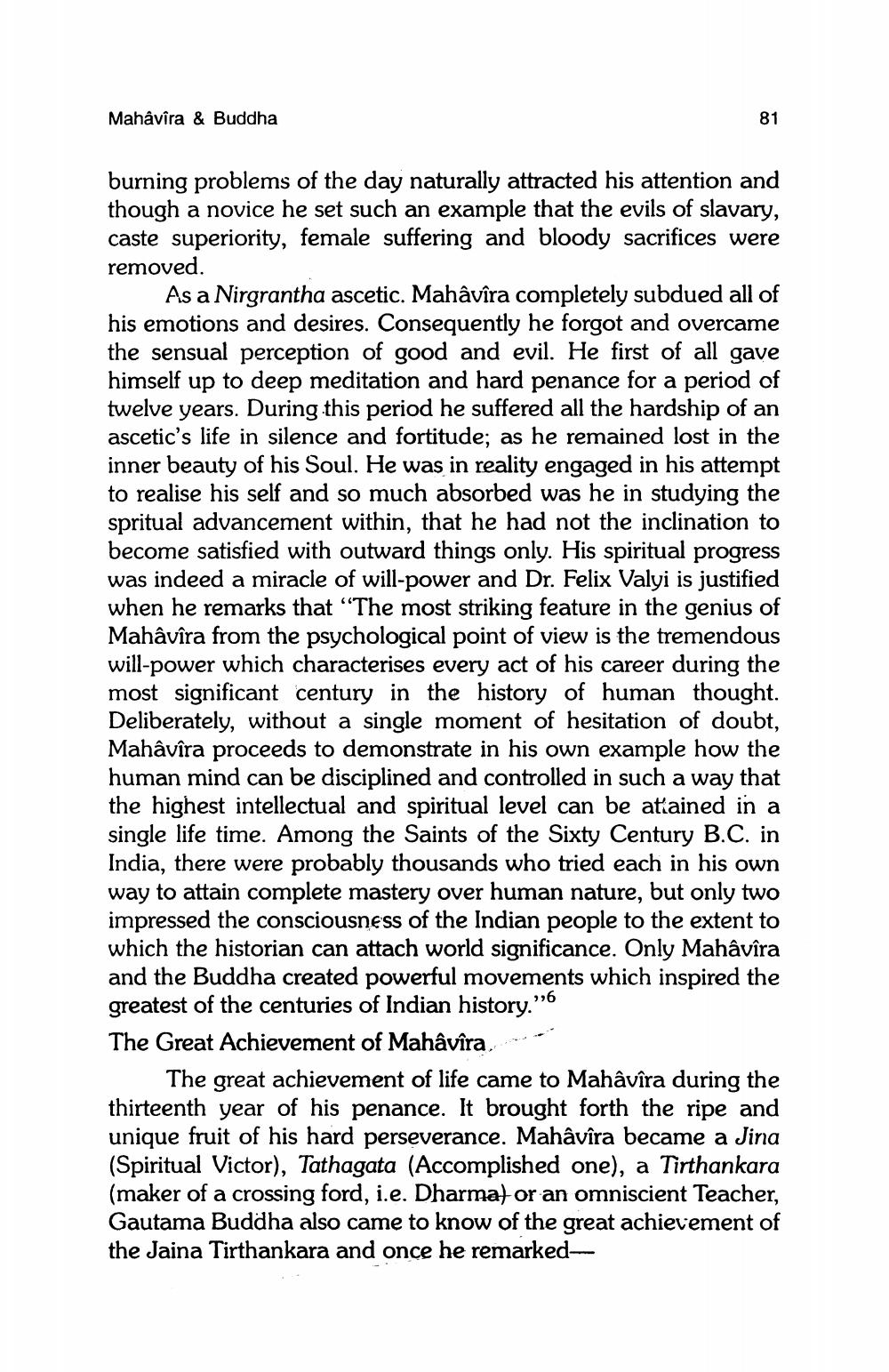________________
Mahâvira & Buddha
81
burning problems of the day naturally attracted his attention and though a novice he set such an example that the evils of slavary, caste superiority, female suffering and bloody sacrifices were removed.
As a Nirgrantha ascetic. Mahâvîra completely subdued all of his emotions and desires. Consequently he forgot and overcame the sensual perception of good and evil. He first of all gave himself up to deep meditation and hard penance for a period of twelve years. During this period he suffered all the hardship of an ascetic's life in silence and fortitude; as he remained lost in the inner beauty of his Soul. He was in reality engaged in his attempt to realise his self and so much absorbed was he in studying the spritual advancement within, that he had not the inclination to become satisfied with outward things only. His spiritual progress was indeed a miracle of will-power and Dr. Felix Valyi is justified when he remarks that “The most striking feature in the genius of Mahâvîra from the psychological point of view is the tremendous will-power which characterises every act of his career during the most significant century in the history of human thought. Deliberately, without a single moment of hesitation of doubt, Mahâvîra proceeds to demonstrate in his own example how the human mind can be disciplined and controlled in such a way that the highest intellectual and spiritual level can be atiained in a single life time. Among the Saints of the Sixty Century B.C. in India, there were probably thousands who tried each in his own way to attain complete mastery over human nature, but only two impressed the consciousness of the Indian people to the extent to which the historian can attach world significance. Only Mahâvîra and the Buddha created powerful movements which inspired the greatest of the centuries of Indian history.”6 The Great Achievement of Mahâvîra,
The great achievement of life came to Mahâvîra during the thirteenth year of his penance. It brought forth the ripe and unique fruit of his hard perseverance. Mahâvîra became a Jina (Spiritual Victor), Tathagata (Accomplished one), a Tirthankara (maker of a crossing ford, i.e. Dharmal or an omniscient Teacher, Gautama Buddha also came to know of the great achievement of the Jaina Tirthankara and once he remarked




